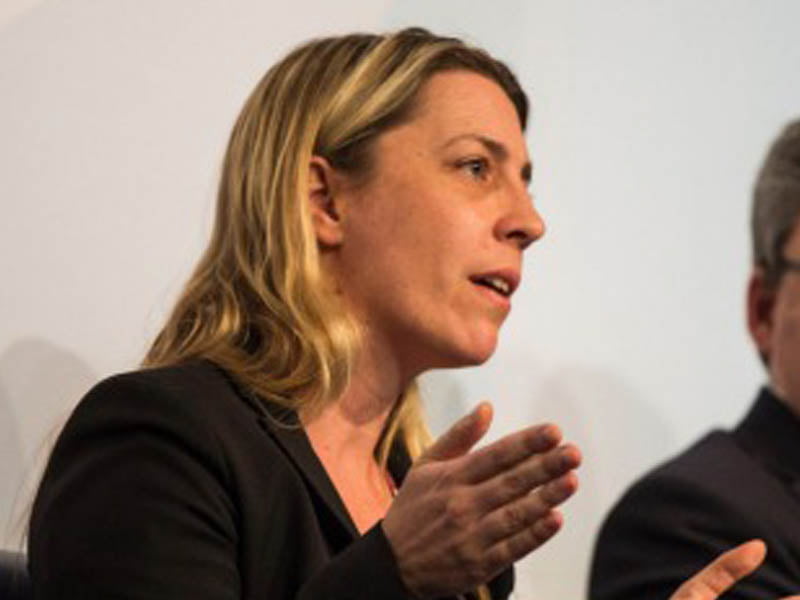Australia’s deep tech sector is facing a ‘huge’ talent gap as the country’s biggest incubator in the space looks to keep promising companies from relocating overseas.
Cicada Innovations, an incubator in Sydney for deep tech, science-based startups, held a careers fair over the weekend with about 850 students, academics and industry newcomers getting a taste of what’s on offer in the sector.
It’s a rare chance to get a look at what some of the companies in Cicada are doing, with IP-sensitive companies usually remaining behind closed doors.

Cicada Innovations chief executive Petra Andren said the event was all about demonstrating the opportunities on offer in deep tech, and connecting its companies with talented individuals.
“The reason we do it is because our companies find it very difficult to find specialised talent when they’re about to scale,” Ms Andren told InnovationAus.com.
“It’s targeted at PhDs and post-docs – highly skilled talent. It’s to motivate people to go into STEM and show how exciting it is and what the jobs of the future are going to be like.”
“Our companies are behind closed doors for 12 months of the year – because of the IP we can’t put them in a co-working space, that’s the nature of the business. This is the one time we open our doors and show people what we’ve got.”
The so-called skills or talent gap is widely discussed in the Australian tech and startup sectors, with concerns that a lack of available talent, and restrictive skilled migration will inhibit local companies’ ability to grow and scale while remaining in the country.
Ms Andren said this issue is especially pronounced in deep tech, an area that requires very specialised and specific workers.
“In deep tech especially we do need to find local talent. There are some areas where we simply don’t have it. It’s important to think long term about it.
“Part of this is to make people enthusiastic about studying STEM and going into that career. There is a huge lack of specialised talent in this sector,” she said.
“We need to make sure we can source this. We do need to do more to find talent so these companies can scale here in Australia, otherwise we will lose them – the companies might go overseas.
“It’s important to show people what this environment is all about. It’s not for everyone but there are opportunities for people.”
The careers fair over the weekend displayed some of the companies currently incubating in Cicada, including hydrogen cars, autonomous vehicles, mind-controlled drones and VR technologies.
Events like the careers expo are important for showing people what’s on offer in the sector and that there are jobs available, but much more needs to be done to tackle the looming skills gap, Ms Andren said, and this needs to start in high schools or even earlier.
“We know there aren’t enough people going into STEM careers, we are falling behind. We need to inspire people and make it cool again, and we need to signal that this is where the jobs are, and it’s important for people to understand what it means. We need to do more in the early stages, and we need to get more women into science,” she said.
Last week Cicada ran the Project XX event with government funding, aiming to inspire more women and young girls to pursue STEM studies and careers. The event featured successful female entrepreneurs and aimed to encourage more women to enter the sector.
“We are trying to inspire local talent and educate the local talent about the alternative career paths and opportunities in deep tech. To me, deep tech is the future for Australia and we need to make sure we have the education system aligned with that, so that when companies are ready to scale they can find the talent locally. That’s really important,” Ms Andren said.
Cicada has been a long-time advocate for broadening the general definition of a startup in Australia to include the IP, science-based companies it is incubating. It’s important to do this when discussing the skills gap that the tech sector is facing, Ms Andren said.
“It’s more of a matter of inclusion rather than separating. Often times in Australia when we refer to startups we refer to coding or an app, but there are startups in robotics and medicine as well – these deep tech, science-based startups,” she said.
“They require a somewhat different skillset and some of these skills are really difficult to find. There is a huge shortage and we are trying to address that as best as we can.
“We need to get more women involved, we need to tell people what the career options are and we need to make it interesting.”
Do you know more? Contact James Riley via Email.

